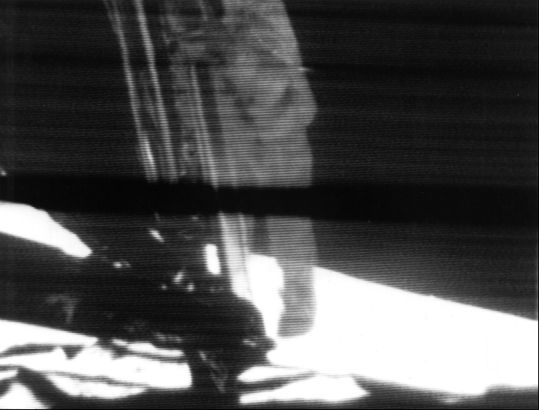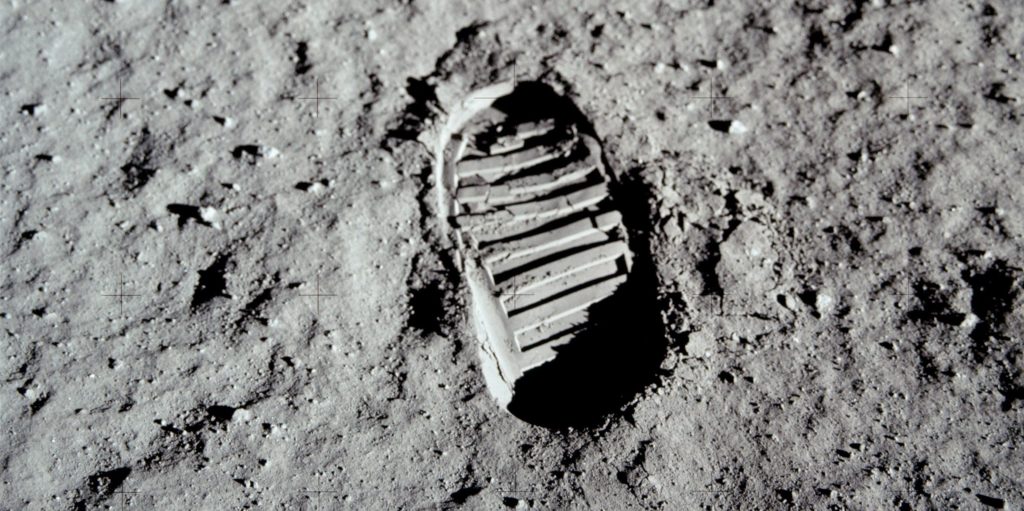
I’ve always been interested in space exploration and I spent countless hours as a kid reading books on NASA’s and Russian cosmonauts exploits. My younger self dreamt of seeing humans return to the Moon, walk on Mars and exploring new solar systems. I am still fascinated by the subject and to me, the Apollo Moon landings are one of mankind’s greatest achievement to date. In countless ways, the Apollo programme was leadership at its finest and countless lessons can be learned from it.
Having a vision will rally others
JFK’s vision “of landing a man on the Moon and returning him safely to the Earth” is the quintessential example of a strong vision. It is very easy to understand by anybody. Yet this vision is also extremely challenging as nobody had ever done such a thing before. The United States was moreover behind the Soviet Union in space technology at the time, which only added to the challenge. This vision was more than just the practicalities of putting a man on the Moon. It was all about opening up a new frontier, living-up to mankind’s spirit of exploration and gaining new knowledge for the progress of all people. This speech is also a fine example of a speech with a clear purpose and objective.
Big ideas such as putting a man on the Moon are no longer in vogue these days. Yet at the same time, the world is beset with numerous challenges and a lack of leadership to solve them. Sure, the cost associated with big ideas is massive but one sentence in JFK’s Moon speech always stood out to me. “The space budget now stands at $5,400 million a year–a staggering sum, though somewhat less than we pay for cigarettes and cigars every year.” Fulfilling a vision is only a question of priorities after all.
Teamwork makes the dream work
At its peak, the Apollo program required the combined efforts of hundreds of thousands of men and women. There were countless problems to be solved, facilities had to be built from scratch all over the southern United States. Even once the basic question to mission architecture was solved for Lunar Orbit rendezvous. The spacecraft itself didn’t exist, the enormous Saturn V rocket existed only on paper and its oxygen-hydrogen fuel gave rise to further challenges. Yet all of these challenges were successfully solved in the end and the objective of putting a man on the Moon and returning him safely was met.
An often-forgotten aspect of the Apollo programme is that three astronauts died in 1967 during a ground rehearsal of the Apollo 1 mission. This event could have easily ended the entire programme. Instead, it was a catalyst for change within NASA for changing procedures, redesigningequipment and asking for nothing less than perfection from staff. A great vision demands great teamwork but also high standards from each team member.
Aim for the Moon and reap the rewards
Looking at it from a historical perspective. Aiming for the Moon was no different from sending ships across the Atlantic to find a route to the Indies. Both endeavours have one thing in common, the benefits to be reaped were ill-defined. Moreover, the likely return on investment was completely unknown. A human hasn’t walked on the Moon since 1972. However, the rewards of the Apollo programme and of the space race are all around us today. Ubiquitous consumer electronics are one of the rewards of the space race. Satellite navigation that saves countless lives on the high seas is another one.
Nevertheless, the real rewards of the Moon landings are human ones. A former colleague once admitted at an event that watching the Moon landing that inspired him to become an engineer. The scientists and engineers that watched the Moon landing as children gave us the Internetand countless other innovations that we now take for granted.
A lesson for today’s risk-averse leaders
Sending a man on the Moon was a costly endeavour but Armstrong famous steps on the Moon’s surface remain the world’s most-watched event in history. The lesson for today’s risk-averse leaders is clear. Take risks and you will reap the rewards. Take risks and you will unify others in ways you cannot even begin to imagine. Choose to take risks because if you aim for the Moon and miss; you’ll fall amongst the stars!

1 thought on “Why the Apollo Moon landings are leadership at its finest!”